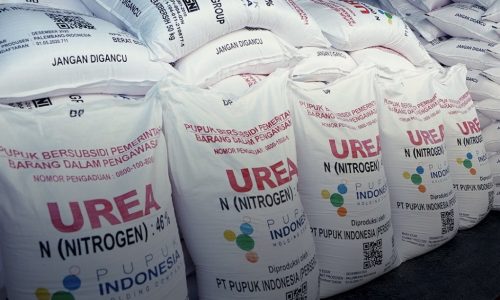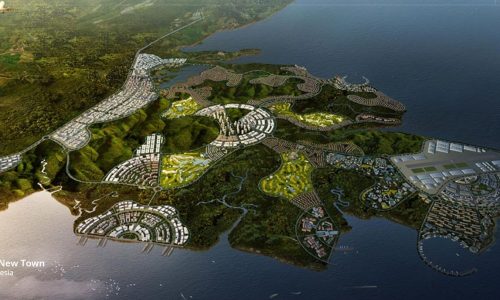Deputy Defense Minister Lt. Gen.(Retired) Muhammad Herindra stated that the modernization of Indonesia’s defense and security equipment is necessary to protect the state’s sovereignty and not to attack other countries.
Herindra said that Indonesia had no power projection in the context of the procurement of military weapons and equipment.
“We need to be strong and therefore prosperity and security need to be in line. We know the realist theory stating that the world is in anarchy. No one controls the world, it is different from a country. The world is in anarchy and chaos. If we are not strong, we will be eaten,” he said in an interview with Indonesia Business Post on February 23, 2023.
Herindra said that other countries should not worry about any arms race because Indonesia would not make the first move to attack. “Our foreign diplomacy is clear, that Indonesia is a free and active nation,” Herindra added.
Herindra did acknowledged the presence of territorial dispute. However, he clarified that Indonesia always tries to solve the issues peacefully. “We do not want conflict, but we do not want to be underestimated either, “ he stated.
Weaponry modernization and defense policy
Herindra explained that in the effort to modernize its military defense system, Indonesia has taken several factors in consideration. These factors include geopolitical and geostrategic situation, the prediction of threats, improvement of combat-readiness and budget allocation.
“We study the constellation of current global politic and security and we need to take position by strengthening internal defense in order to prevent the impact of security instability that could happen any time,” he added.
Herindra further explained that the modernization of the country’s primary defense system is part of the Indonesia Military (TNI) Posture Development Policy.
The development policy, as Herindra stated, is mostly influenced by the dynamic of existing threats. Therefore, the modernization of the defense and security equipment should align with efforts to increase professionalism and wellbeing of the military personnel and the strengthening of the TNI combat units.
Read also: Reserve Component to respond to threats of terrorism, territorial dispute
Indonesia’s defense policy is implemented through the procurement of primary defense system and combat-ready security equipment with focus on long distance precision and interoperability. It also helps to increase the number of Reserve Components (Komcad) for the army, navy and air force that can be deployed across the country.
Herindra explained that the development of the TNI main power is in accordance with the 2010-2024 National Long-Term Development Plan (RPJP). There are four elements in the development of the TNI main power policy: re-materialization, revitalization, relocation and procurement.
Budget allocation
In relation to budget, the Indonesian government has increased the amount of the defense budget gradually. In 2023, the government allocated IDR 134.32 trillion (US$ 8.8 billion) for the development of Indonesia’s primary defense system.
Herindra explained that Indonesia has been aware that the geo-politic and geostrategic dynamic have provoked the increasing global weaponry. This is obvious from powerful countries’ defense budget allocation.
Read also: Indonesia modernizes its defense capacity amidst growing tension in South China Sea
In 2021, the United State allocated defense budget of US$ 801 billion or 3.5% of its gross domestic product. China followed with US$ 293 billion, or 1.7 % of its gross national product. India allocated US$ 76.6 billion (2.7% of the GDP), the United Kingdom with US$ 68.4 billion (2.2% of its GDP) and Russia with US$ 65.9 billion (4.1 % of its GDP).
“If we compare Indonesia with other Southeast Asian countries, our defense budget is very small, which is 0.64% [of the GDP]. Brunei Darussalam has its defense budget set at 4.12 % of its GDP and Singapore allocates 3.23% of its GDP [for defense]. Even if we compared [our defense budget] with Timor-Leste, a newly independent nation, ours is smaller. Timor-Leste allocates 1% of its GDP for its defense sector,” Herindra said.
Defense spending
Further in relation to defense budget, The government has issued a policy to turn “defense spending” into “defense investment”. President Joko “Jokowi” Widodo had recently instructed the transformation of “defense spending” policy to “defense investment” policy.
The transformation is intended to optimize the allocation for defense budget and change the mindset in the procurement of imported primary weapons system. The new policy is believed to be able to help in the development of Indonesia defense industry.
In addition to domestic procurement, the defense ministry is also conducting procurement from foreign markets, such as purchasing 4th generation twin engine lightweight Rafale fighter jets.
The Rafale is produced by French company Dassault Aviation and is expected to help strengthen the Indonesian air force weapon system.
“The purchase of the one squadron of Rafale jet fighters is the biggest purchase by our government. We cannot deny that the increasing power of a weapon system can be a barometer for defense power display of a country. For Indonesia, this issue has a specific policy reach, which is the modernization of primary weapons system,” Herindra explained.
Read also: French Rafale jet fighters first shipment to arrive in 2023
Indonesia had ordered 42 Rafale jet fighters from France, as announced by French Minister of the Armed Forces Florence Parly on February 10, 2022, in her Twitter account.
The Indonesian defense ministry also announced on the same day that the country will be purchasing six Rafale fighter aircraft. However, the ministry did not mention another 36 Rafale aircraft and two Scorpene submarines.
In addition to purchasing a total of 42 fighter jets and two submarines, PT PAL also signed an agreement with French industrial group Naval to establish a joint research and development center for submarines.
Herindra said none could predict the end of the ongoing Russia-Ukraine war, that has been going on for a year. There is also an increasing tension in the South China sea or Taiwan and the issue of North Korea nuclear. All those conflicts and tensions have given Indonesia a broad image on the map of military armament supply in the world.









